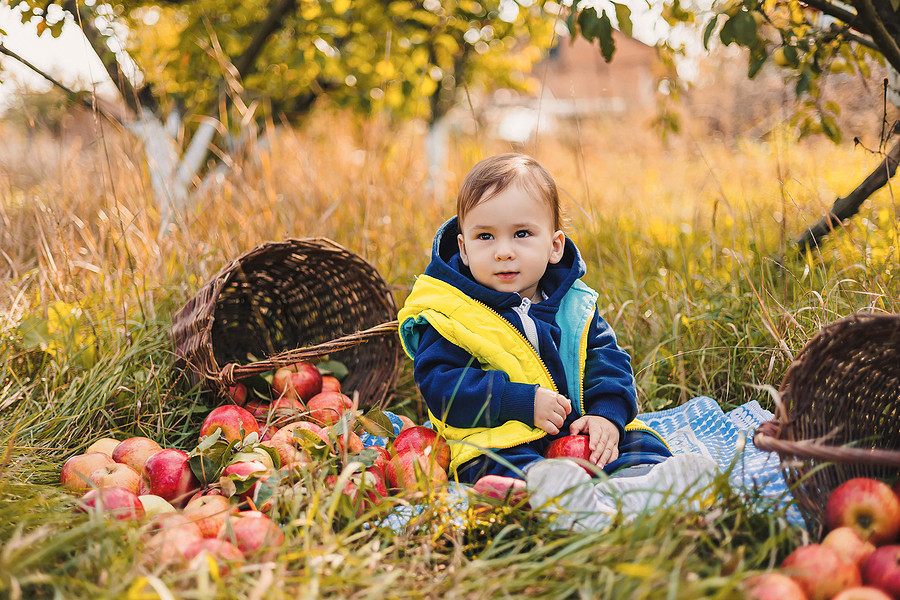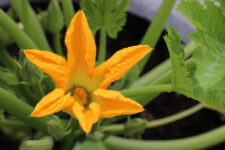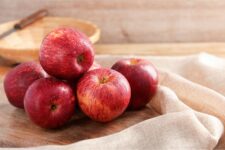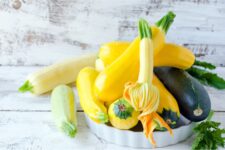Fall means it’s time to head to your local orchard to pick some fresh apples. Here, we’ll tell you when apple picking season is based on your region and the varieties you’re hunting, and share some of our top apple-picking tips and apple-based recipes.
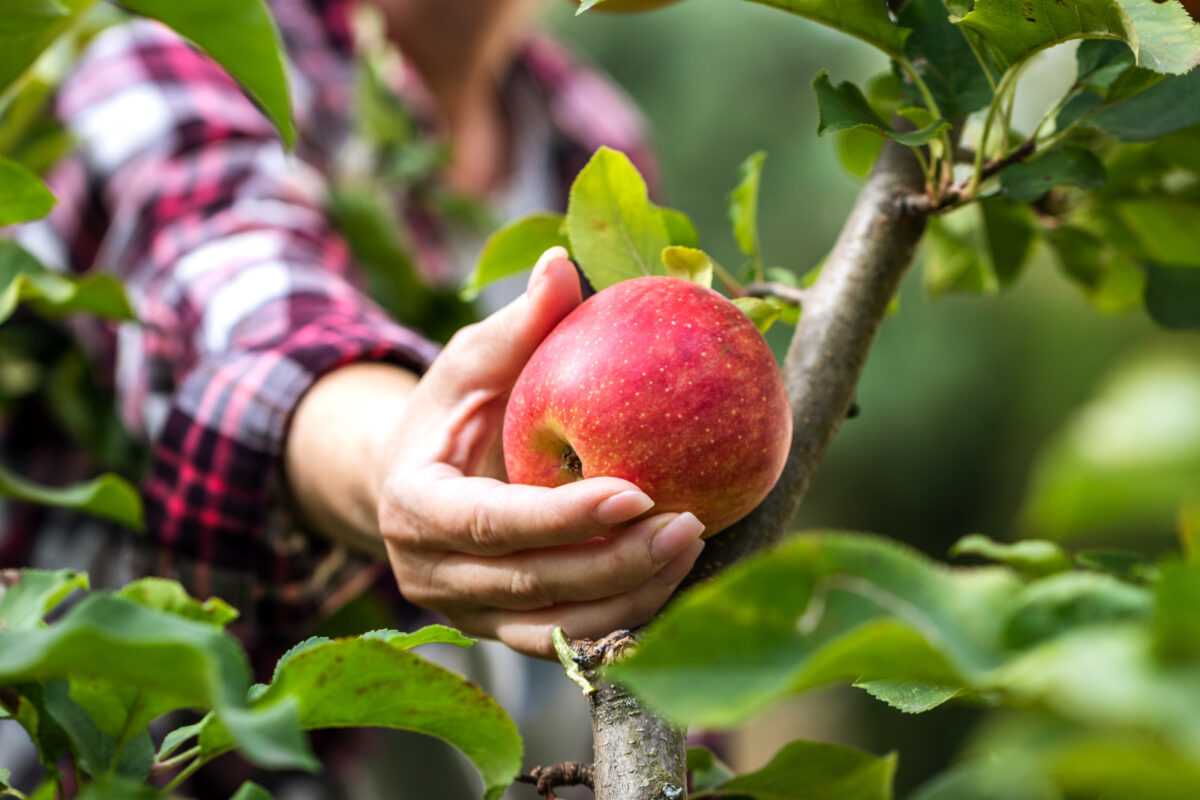
The smell of spicy cider, hay rides, and a cool breeze twisting through the orchard—there is no better way to celebrate fall than to go apple picking!
But before you grab your basket and head outside, you first need to know when apple picking season is.
Since this varies by region and the type of apples you’re after, the answer to this question can get complicated. Once you figure out when to go, you’ll also need to know what to bring, how to identify the best apples to pick, and all the other pro-apple picking tips of the season.
Below, you’ll find everything you need to know to make this autumn’s trip to the orchard the best one yet!
Apple Picking Season by Region
While we associate apple picking season with fall, it is really the spring weather in the region that determines when apples ripen.
Short, warm springs, like those in the southern states, see apple trees producing blossoms much earlier in the year than trees up north. This headstart means apples in The South will be ready to pick before their northern cousins.
Apples in cold regions tend to ripen later in the year. The season also tends to be shorter since the first frost will claim any apples left on the trees.
Before you can start your apple-picking adventure, you need to figure out when your local apples will be ripe.
Here is a quick reference guide showing the timing of apple season by region, according to local orchards:
| Region | Apple Picking Season |
| South | Last week of August through the end of October. |
| Northeast | Last week of August through the first week of November |
| Midwest | Early September through the end of October |
| Southwest | August through early October |
| Northwest | September through mid-October |
| West Coast | August through late November |
Apple Picking Season by Variety
The type of apple trees in the orchard will also determine when the fruit will be ready to pick.
Earligold apples, for instance, take around 80 days to ripen. Meanwhile, Granny Smith’s can take as long as 180 days.
Because of differences in maturity rate, Earligold apples are available to pick in the late summer while Granny Smith’s won’t be ripe until well into fall.
Here is a general guide to when some of the most popular apple varieties are likely to be ripe:
| Apple Variety | Season |
| Braeburn | October |
| Earligold | July-August |
| Empire | August-September |
| Fuji | October |
| Gala | August-September |
| Ginger Gold | August-September |
| Golden Delicious | September |
| Granny Smith | October |
| Honeycrisp | September |
| Jonathan | September |
| Liberty | October |
| Mcintosh | September |
| Mutsu | September-October |
| Ozark Gold | August |
| Pink Lady | October |
| Red Delicious | September |
| Zester | July-August |
Growing a variety of different types of apples helps orchards extend their U-pick seasons. But what they can grow is restricted by the length of their seasons.
Local climate and the year’s weather patterns can also influence when an apple tree will start bearing ripe fruit. It’s always a good idea to call your local orchard to find out what apple tree varieties they have and when they’ll be ripe.

How to Pick Your Own Apples
Once you know when apples are going to ripe and ready for the pickin’ in your region, it’s time to prepare for what’s sure to be a fun and memorable family outing.
Here is everything you need to know to pick your own apples, whether you’re going to a local orchard or hunting down some wild treasures.
Find the Local Spot
With the exception of Hawaii and Florida, every state has at least one apple orchard that allows you to pick your own apples in the fall. These farms typically offer a range of seasonal festivities to help you make the most of the day.
Hay rides, hot cider, and petting zoos are all common attractions at orchards.
If you’re lucky enough to have multiple orchards within driving distance, call around to see what apple varieties are available where. One of the best parts of picking your own apples is exploring lesser-known options.
If you live in California, for instance, you may be lucky enough to try the rare Pink Pearl apple if you search hard enough. If you live in Maine, it’s worth tracking down the state’s very own gorgeously gothic Black Oxford apple.
For those who don’t live near any orchards open to the community, you may not be out of luck. Wild apple trees grow throughout the United States. In fact, it’s possible to find many common cultivated species growing wild, even in unusual areas like North Florida.
Foraging for apples is more of an adventure than a relaxing day at the orchard, but it’s still a great way to celebrate autumn!
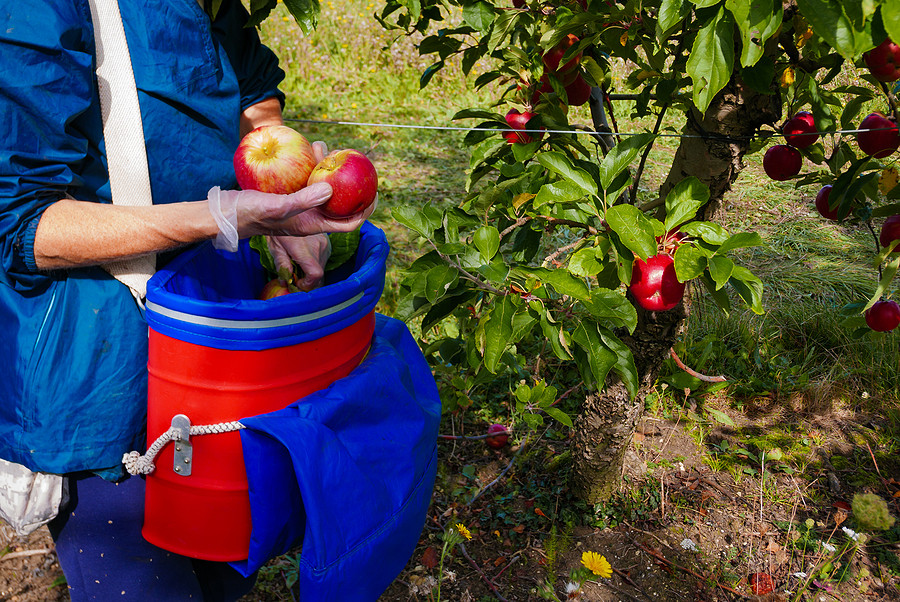
Come Prepared
Once you’ve picked your destination, don’t forget to pack a few essentials.
First up, you want to dress the part. Depending on where you are, that probably means wearing some layers just in case that sunny fall day ends up getting a little chilly. We recommend bringing sweaters, jackets, hats, and gloves, just in case.
Closed-toed shoes are also a good idea. Most U-pick orchards are fairly large, which means a lot of walking to find the perfect apple (or twenty).
It’s also a great idea to bring a tote or basket to carry your apples. That way you don’t have to waste a single-use bag from the farm.
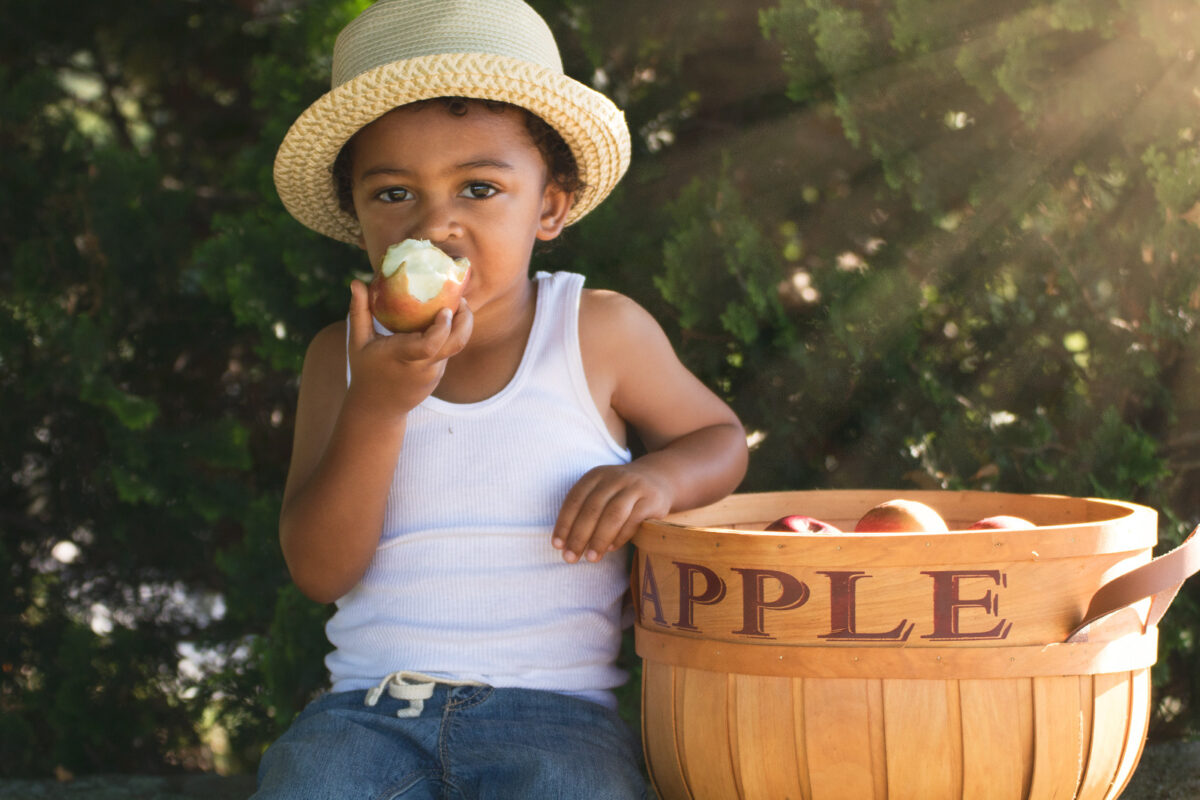
Look for Ripe Fruit
Even if you’ve researched when your favorite apple type will be ripe and arrive at the orchard at the right time, there’s no guarantee every apple you find will be ready to pick.
To make sure you get to experience the full flavor of these unique apple varieties, you’ll want to follow these steps to find the ripest fruit:
- Look at the base color. Check out some photos of the different apple varieties you want to pick before leaving home. Once at the orchard, look for plump apples that have matured to that base color on all sides.
- Look for apples on the ground. Once apples on a tree get overripe, they’ll begin to drop to the ground. If you see a few healthy apples on the ground below the tree, that’s a good sign most of the apples left on the branches are ripe.
- Gently lift up on the apple. Ripe apples will separate from the tree with almost no force. If you gently lift the apple up and back toward the tree, the stem should snap. If it doesn’t, it’s probably not ripe yet.
If you do end up with a few slightly unripe apples, don’t fret! These will ripen in just a few days.
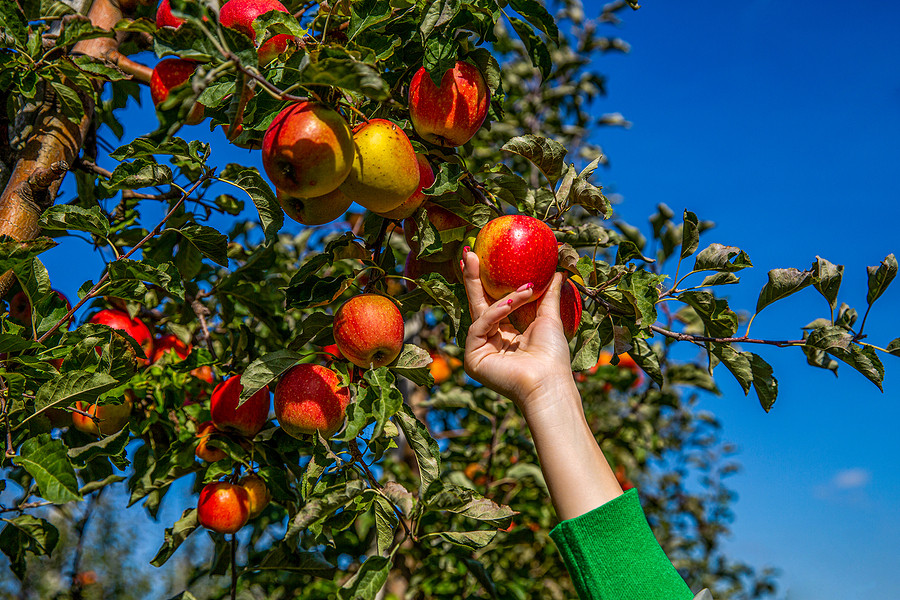
Lift, Twist, and Pull
For the sake of the orchard owners and the other patrons, you want to make sure you pick the apples the right way. This means not tugging on the branches or ripping leaves off along with your fruit.
As we mentioned above, ripe apples come free from the tree very easily. All you need to do is lift the base of the fruit up and back toward the branch.
If you find a less ripe fruit, this may not be enough to get it to detach. In this case, do not pull on the apple. Instead, gently twist it until the stem breaks.
Store Extras Properly
If you’ve had an especially productive day at the orchard, you’re likely to come home with more apples than you can eat in one day. Storing these extras properly will be key.
For apples you plan to eat within a few days, the best place to store them is on the counter. Apples that you want to last a few weeks should be stored in the crisper drawer of your refrigerator.
Some apples can last for an impressively long time. Crisp, thick-skinned varieties, often called storage apples, can last six months if kept in a cool, humid cellar. In fact, Braeburn and Goldrush apples are known to readily last over a year when properly stored.

Our Favorite Apple Recipes
Now that you know when and how to pick your own apples, it’s time to talk about what to do with them once you get them home!
Many apples you’ll find at orchards are delicious when eaten fresh. But you’ll also find plenty of great baking and cider apples worth trying as well.
Here are a few of our favorite apple recipes worth trying out on your hand-picked bushel.
- Parsnip and Apple Soup – Earthy parsnip and sweet apples are complemented by savory garlic, onions, and curry in this surprising yet delicious soup
- Baked Apples – Four Ways – With four different, delectable fillings, these sweet and savory baked apples make an amazing autumn treat.
- Bacon-Wilted Greens with Warm Goat Cheese – This Southern-inspired recipe utilizes a garnish of baked apples and goat cheese on top of kale, red onion, and bacon.
- Perfect Fall Salad – What better way to celebrate your perfect fall day picking apples than with this perfect fall salad featuring parsnip, cranberries, and goat cheese?
- Apple Almond Crisp – This warm and comforting dessert pairs crisp and tart baking apples with sweet orange juice and a crumbly, crispy topping that’s to die for.
- Easy Homemade Apple Cider – This easy cider requires only five apples and about 3 hours to make. And it is so worth every second!

